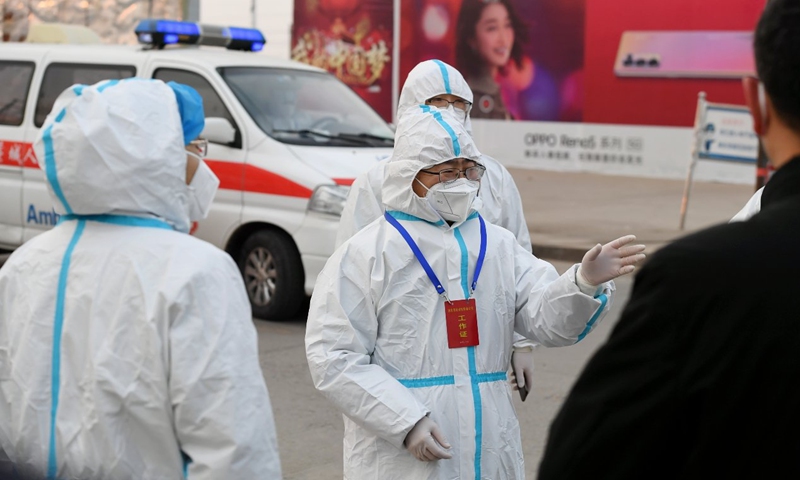Award recognizes community management's role in beating outbreak


China is contributing its community management experience in the fight against the COVID-19 pandemic to the world, with its grassroots medical workers being recognized by the world's top health officers.
In late May, Wu Hao, director of the Fangzhuang Community Health Services Center in Beijing's Fengtai's district, was presented with the Sasakawa Health Prize at the World Health Assembly, becoming the third Chinese winner.
Wu, who focuses on grassroots healthcare work, knows the importance of community management, especially during the early stages of epidemic control.
"Infectious diseases are different from other diseases, and can't be controlled if problems appear at the community level," he said.
"I think the major reason for our success in controlling the epidemic lies in the good performance of community management. It shows the advantages of our social system, patriotism and the Chinese people's spirit of self-sacrifice."
An expert in community healthcare management, Wu was deployed to Wuhan, capital of Hubei province and the Chinese city hit hardest by the outbreak, early last year.
"I arrived in Wuhan in early February and I remember it was a freezing, rainy night," he said. "I was part of a special expert team made up of professional grassroots medical workers and disease control staff members.
"We grassroots medical workers know how to communicate with residents better.
"We were racing against time every day. From my perspective, locking down a community is a sad and solemn act. We were unwilling to do this but we had no better options. It was a very difficult choice."
He said that at the very beginning, his work team and residents used any available items, such as cars and motorbikes, to block community exits. He also made great efforts to help solve daily problems.
"I went to supermarkets to coordinate supplies. I proposed that the supermarkets pack the vegetables in advance and transport them to the team managing the community, who would take on the job of handing out the supplies to residents," Wu said.
Managing a community amid an epidemic requires both a scientific approach and persistence, he said. "Also, it's not a job that can be done by a single person, but one that needs professional guidance from medical workers, administrative control measures and coordination with residents."
- Taiwan students join winter sports exchange in Tianjin
- World's largest vertical shaft boring machine deployed for cross-river railway tunnel
- Former chairman of State-owned enterprise sentenced to death with two-year reprieve
- Sichuan's ecological restoration attracts record number of migratory birds
- Two firms fined 23 million yuan for deadly Jiangxi fire
- Beijing introduces new policies to enhance parks





































